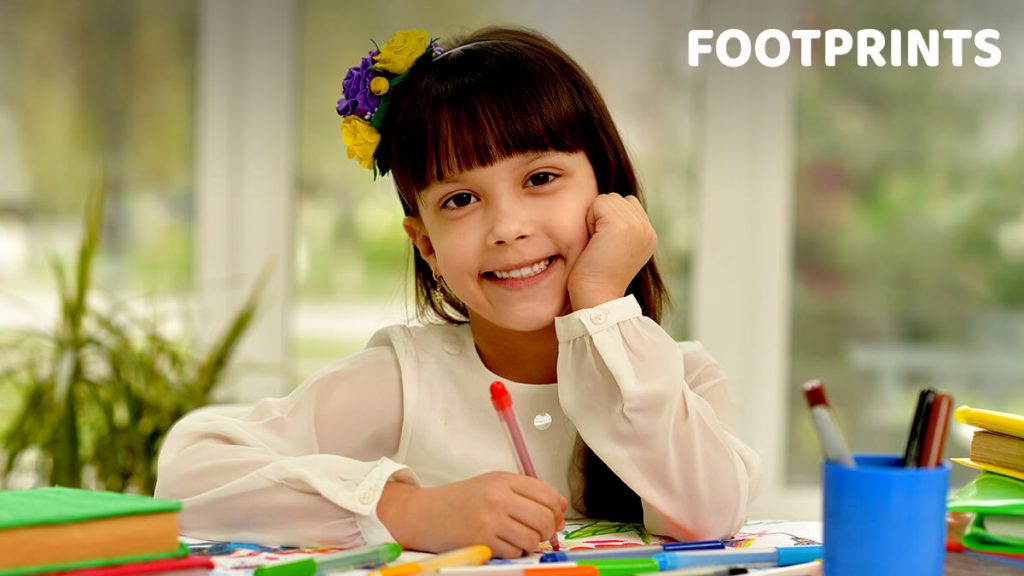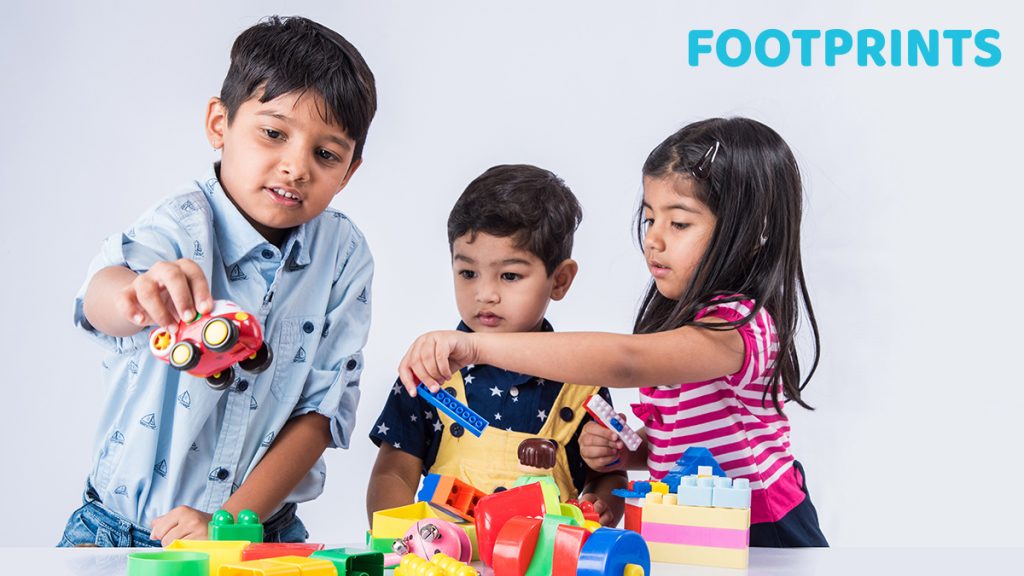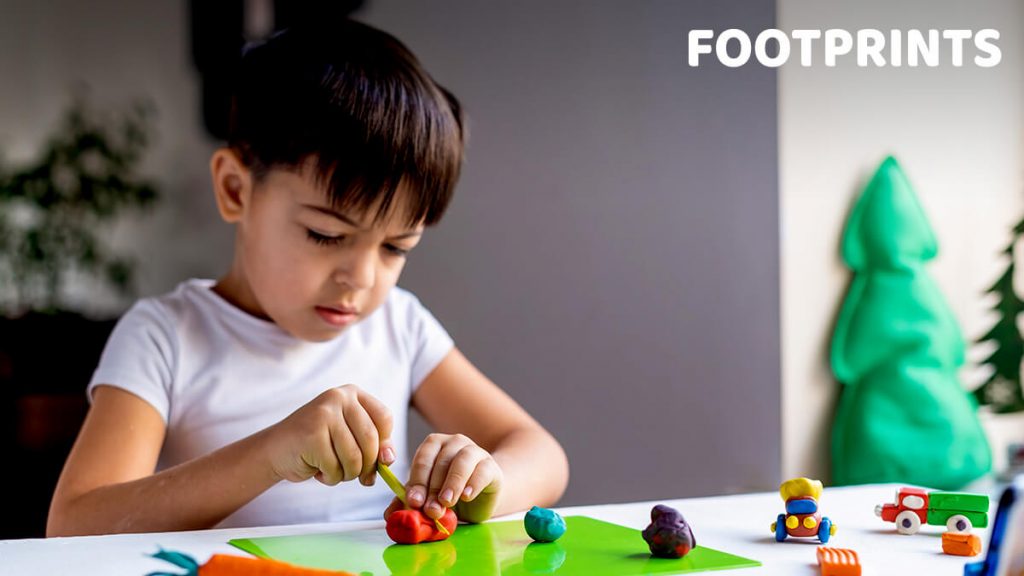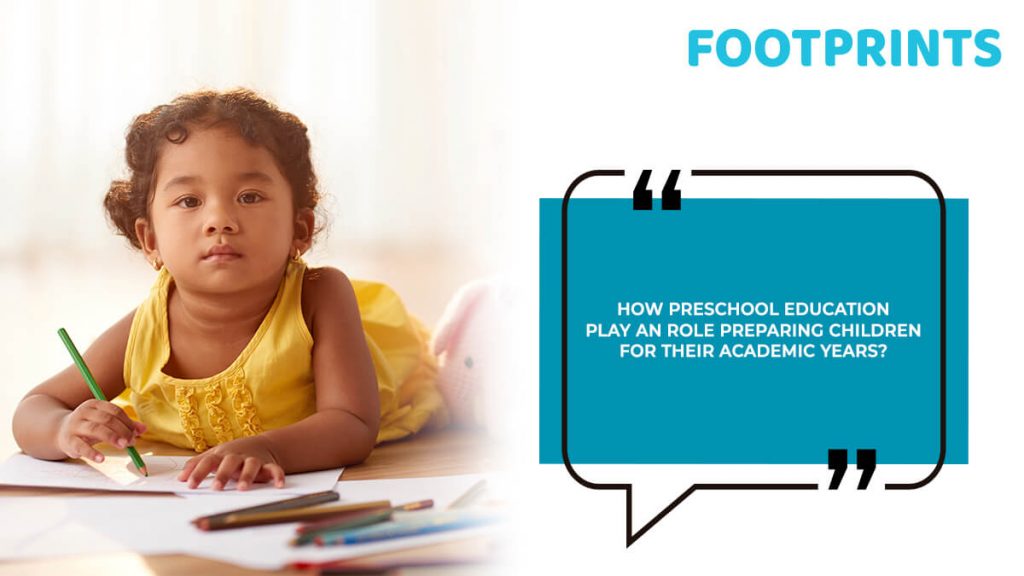
As per research, 90% of a child’s brain’s development happens before the age of 5. It stands to reason, then, that experiences in early childhood have a strong bearing on later learning and behavior. If one was to delve a little more into brain development, one would find that a newborn baby has all the brain cells that they will have for the rest of their lives. What develops rapidly in the first five years of life are synapses, or neural connections between these brain cells. In fact, connections required for many high-level abilities, such as problem-solving or even self-regulation, are formed during these early years. Importantly, what helps build these connections are positive interactions and the amount of care and stimulation offered to children. It is in offering this positive interaction and stimulation that preschool education plays an extremely important role. Here are the many ways Preschool and Daycare plays an important role in preparing children for their academic years and life.
1. Raising Curious Learners
The most important thing that preschool can do for young children is to turn them into curious learners. With a scientifically developed curriculum, children’s curiosity and creativity are nurtured in a preschool setup. Efforts are made to foster the child’s inquiry and to allow them to ask questions and carry out age-appropriate activities. In short, what children are taught is how to learn instead of what to learn. It goes without saying that it helps the child immensely, not just in kindergarten but in their overall academic journey, as children fall in love with the very process of learning.
2. Independence
What playschool education also helps with is developing a sense of independence in young learners. Not only does it preparing children to overcome separation anxiety, but if preschool education is designed for the holistic development of the child, it allows the child to exercise age-appropriate choices and carry out activities independently while providing adult scaffolding. They learn important habits such as keeping their belongings in place, washing their hands before meals, and more. All of these go a long way in helping them settle down in a formal school environment. In fact, when the child is able to perform tasks independently, it adds to their confidence and self-esteem, which in turn become huge enablers for their overall success.

3. Motor Skills
Preschool is also the phase when children are developing both their gross and fine motor skills. Gross motor skills refer to the controlling of large body movements, while fine motor skills refer to physical skills that involve small muscles and hand-eye coordination. With the many avenues for undertaking physical activities such as running and jumping, children develop gross motor skills, while activities such as painting, threading beads, and more help children develop fine motor skills. In turn, these motor skills offer children new learning opportunities. In fact, research has also shown that gross and fine motor skills are even predictive of later language outcomes.
4. Social Skills
What preschool also offers is an important lesson in socialization. It is the first time that children spend time away from their immediate family members and interact with other children as well as adults. The lessons that they learn include collaboration, learning to share, turn taking, and more. These skills that are learned in a secure environment help them a lot when it is time to settle down in a formal school environment.
What children also learn is to look out for others and to assist them in times of need. While at preschool, children may also be given opportunities to assist the teacher with small tasks. All of this enhances their confidence and self-esteem while also teaching them lessons in sharing and empathy.
Needless to say, socialization as a skill set comes in handy much beyond their academic journey.

5. Pre-literacy skills
Preschool plays an important role in preparing children and also helps children develop a wide range of pre-literacy skills that set the stage for their formal school journey. From learning rhymes, listening to stories, understanding numbers, and more, these activities help the child make important connections that aid their academic journey. Importantly, the preschool offers a language-rich setting. With opportunities to listen, read, sing, act, and more, language skills are significantly enhanced.
6. Cognitive Skills
Preschool is also an apt setting for the child to develop cognitive skills as there are enough and more opportunities to try new things, solve issues, ask questions, make age-appropriate decisions, and a lot more. In fact, what a good preschool does is inculcate life skills in children, which, as their name suggests, help them navigate life journeys.

To Sum Up
Clearly, the importance of preschool education is multi-faceted. On the one hand, it offers children pre-literacy skills, including pre-math and language skills, that aid their academic journey. Importantly, it also equips them with the much-needed life skills that help them navigate life itself. The choice of the right curriculum ensures that early learners are supported as they make decisions, build academic skills, and develop socially and emotionally.
At Footprints, we are committed to the holistic development of children. We follow the High Scope Curriculum, which has over four decades of scientific research behind it. The curriculum has active learning at its core and helps young children gain knowledge through natural play as well as interactions with the environment, events, and other people. The research behind the High Scope curriculum reveals that it helps children not just be better prepared for school but helps them in areas such as displaying self-regulation, having higher graduation rates, finding stable employment, creating stable home environments, and being well-adjusted and engaged civically. Footprints Preschool plays an important role in preparing children.
Here’s to raising a generation of learners for life!


